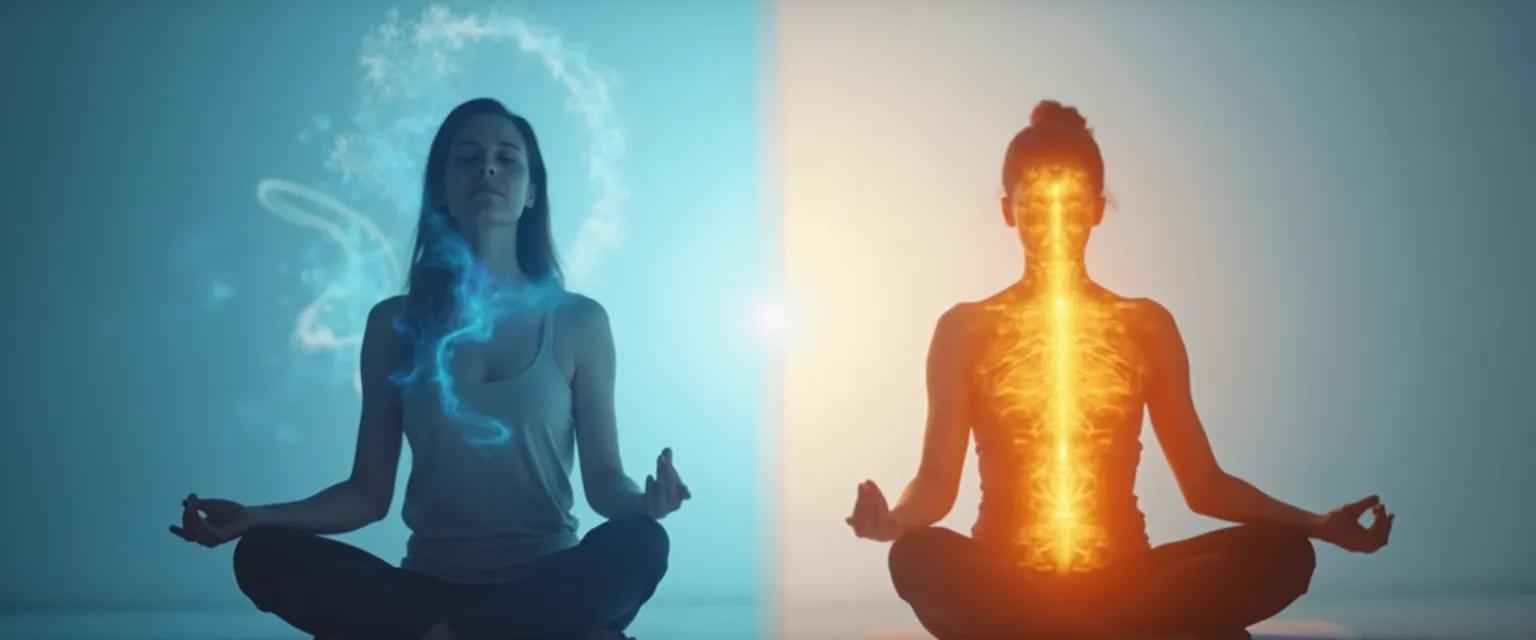Rhythmic Breathing vs. PMR: Which Works Better to Relax My Mind?
Your mind is like a browser with 37 tabs open. All. The. Time. When mental chatter runs wild, finding ways to relax my mind becomes essential for maintaining balance and emotional well-being. The good news? Science has identified two powerful techniques that effectively quiet that mental noise: rhythmic breathing and progressive muscle relaxation. These approaches work differently, which is why they suit different people and situations. Some of us respond better to breath-centered practices, while others find physical tension release more effective to relax my mind. This practical comparison will help you discover which technique aligns with your needs and personality, providing a customized path to mental calm when you need it most.
Both methods are backed by research showing they activate your parasympathetic nervous system – your body's built-in relaxation response. But the best technique to relax my mind depends on your specific situation, stress triggers, and personal preferences. Let's explore how each works and when to use them for optimal results.
How Rhythmic Breathing Helps Relax My Mind
Rhythmic breathing works by directly influencing your autonomic nervous system – the control center that regulates your stress response. When you breathe in specific patterns, you send signals to your brain that it's safe to relax my mind and body. This creates an immediate calming effect that can be felt within minutes.
The popular 4-7-8 breathing technique offers a simple framework: inhale quietly through your nose for 4 counts, hold your breath for 7 counts, then exhale completely through your mouth for 8 counts. This pattern creates a natural rhythm that reduces anxiety and helps quiet racing thoughts.
Rhythmic breathing works best when:
- You need immediate relief from acute stress
- You're in public settings where discreet relaxation techniques are necessary
- Your mind is racing with anxious thoughts
- You're preparing for a challenging situation like a presentation or difficult conversation
The key mistake many people make is breathing too shallowly or rushing through the counts. For maximum benefit, focus on deep, diaphragmatic breathing that fully engages your lungs and allows you to relax my mind completely.
Progressive Muscle Relaxation: Another Way to Relax My Mind
Progressive Muscle Relaxation (PMR) takes a different approach by focusing on the physical manifestations of stress. This technique works on a simple principle: by deliberately tensing muscle groups and then releasing them, you create a deeper state of physical relaxation, which naturally helps relax my mind as well.
A basic 5-minute PMR routine involves:
- Sitting or lying in a comfortable position
- Starting with your feet, tense the muscles for 5-10 seconds
- Release the tension completely and notice the difference
- Move progressively upward through major muscle groups
- End with facial muscles, tensing and releasing your forehead, jaw, and eyes
PMR excels in situations where:
- Physical tension is your primary stress symptom
- You have time for a slightly longer relaxation practice
- You struggle with falling asleep due to anxiety
- Your mind responds better to physical cues than breathing exercises
The body-mind connection works both ways – by releasing physical tension, you naturally help relax my mind as well. This technique is particularly effective for those who hold stress in specific areas like the shoulders, jaw, or lower back.
Choose the Right Technique to Relax Your Mind Today
Selecting the right technique depends on understanding your personal stress response and current situation. Here's a simple decision framework to help you choose:
Consider Your Stress Type:
If your stress manifests primarily as racing thoughts or worry, rhythmic breathing often works faster to relax my mind. If you experience physical tension first (tight shoulders, clenched jaw), PMR might be your better first option.
The available time matters too. Rhythmic breathing can be done in just 30 seconds, making it perfect for quick relief. PMR delivers deeper relaxation but requires 3-5 minutes of focused attention.
Your environment also influences which technique works best. In public settings, rhythmic breathing offers a discreet way to boost confidence and calm. When you have privacy, PMR provides more comprehensive relaxation.
The ultimate approach to relax my mind effectively combines both techniques in a personalized sequence. Start with rhythmic breathing for immediate relief, then transition to PMR for deeper, longer-lasting calm when time permits. By mastering both methods, you'll have powerful tools to relax my mind in any situation life throws your way.




